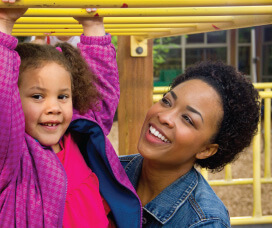
Parenting after divorce takes insight
By Rosalind Sedacca, CDC
Let’s face it, divorce impacts everyone in the family. But it doesn’t have to scar your children if you remember to put their emotional and psychological needs first when making crucial co-parenting decisions. Keep in mind that every decision you make regarding your divorce will affect the wellbeing of your children in a multitude of serious ways. Of course, the emotional scars are not only harder to see, they’re also much harder to erase.
Here are 6 significant ways to avoid scarring or wounding your kids as you move through your divorce and transition into post-divorce co-parenting in the months and years ahead.
1) Stop conflict and fighting around the kids!
Studies show time and again that it is conflict and tension around children that creates the most difficulties for them related to divorce. It’s not the divorce itself! That means parents can ease the process for their kids by eliminating battles, disrespectful behavior and emotional outburst anywhere near the kids. That means no fighting on the phone, in another room, during pick-ups and drop-offs or when talking with friends within earshot of your child.
2) Emphasize that your kids are not at fault.
It is common for children tend to blame themselves for divorce, no matter how bad Mom and Dad’s relationship has been. The younger the child, the more likely this is so. Sit down together and talk to your kids, emphasizing that they are in no way at fault. You can say something like: “Mom and Dad don’t agree about certain key issues and that has created conflict. Even when some of the issues are about you, it does not mean you are to blame. You are an innocent child who we both love. Sadly, Mom and Dad disagree about things — but not about our love for you. You are not to blame for our divorce.”
3) Put your attention on change — not on blame.
Divorce always results in change within the family. Some of those changes can be beneficial and create a more peaceful environment for your children. Never burden them with adult information and judgments. Remind them instead that our family is changing in some ways but change is an inevitable part of life and not necessarily bad. Let your children see that everything in life keeps changing. “You grow bigger every year. Seasons change, clothing styles change, your school classes change. Sometimes it takes a while to get used to changes, like when you get a new teacher or try a new sport. In time you may come to like these new changes. Let’s give it a try.”
4) Keep from bad-mouthing your child’s other parent.
When you belittle, put down or in any way disrespect your child’s other parent – regardless how justified it may feel – it hurts your children in deep and long-lasting ways. Children innately love both their parents and feel a connection to them. When you insult their other parent it creates confusion, guilt, sadness, anger, insecurity and low self-esteem in your children. Instead, remind them that both of you will always be their parents and will always love them. Reassure them that no one will replace their parents either. “We will both always love you and be there for you, no matter where we live or how things should change.” Then make it your business to do the right thing on their behalf.
5) Let your kids enjoy their childhood.
As tempting as it may be, never confide adult content to your children. They are not psychologically prepared to handle the emotional complexity. As you well know, many adults aren’t either. Save your venting for trusted friends, a divorce coach, therapist or support group. Also never ask your children to spy, act as messengers between both parents or provide inappropriate details about the other parent’s home life. Again, this pressures them in many ways – none of which are positive. It is not their place to assume adult responsibilities or help you to find evidence against your ex. Let your kids be kids. Don’t rob them of their childhood.
6) Put yourself in your child’s shoes.
Before making any decisions regarding divorce issues, think about the consequences for your children. See the outcome through the eyes of your five, ten or fifteen year old. Ask yourself, what will they say to me about this when they are grown adults? Will they thank me for the way I handled the divorce – or be angry and resentful about my attitude and behavior? The choices you make will affect your children for years and decades to come. For their sake, take the high road and be the role model they will come to respect and later want to emulate.
* * * *
Rosalind Sedacca, CDC is a Divorce & Parenting Coach and Founder of the Child-Centered Divorce Network. She is the author of How Do I Tell the Kids about the Divorce? A Create-a-Storybook Guide to Preparing Your Children — with Love! Her innovative approach guides parents in creating a personal family storybook, using fill-in-the-blank templates, family history and photos, as an effective way to break the divorce news with optimum results. For Rosalind’s free ebook on Post-Divorce Parenting and other valuable resources on divorce and co-parenting visit http://www.childcentereddivorce.com.
© Rosalind Sedacca All rights reserved.




